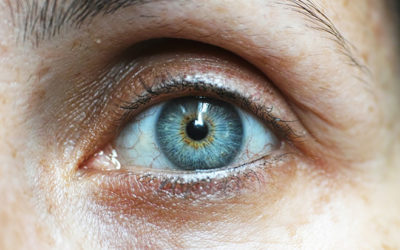Hayfever Eyes: It’s That Time of the Season
WHAT CAUSES EYE ALLERGIES?
Normally harmless substances that cause problems for individuals who are predisposed to allergic reactions are called allergens. The most common airborne allergens that cause eye allergies are pollen, mold, dust and pet dander.
Eye allergies, also known as ocular allergies or allergic conjunctivitis, can also be caused by reactions to certain cosmetics or eye drops, including artificial tears used for treating dry eyes that contain preservatives. So if you find irritability with your eye drops make sure to switch to preservative free drops.
And while food allergies and allergic reactions to bee stings or other insect bites can affect the eyes, they do not typically affect as severely as airborne allergens do. So what are some ways to help manage eye allergies?

7 TIPS FOR MANAGING SYMPTOMS OF EYE ALLERGIES
- After identifying what’s causing your eye allergies, try to avoid what’s causing them, whenever possible.
- When outdoors try wearing wraparound sunglasses to cut down on the amount of pollens that come in contact with your eye’s surface.
- Don’t touch pets and then rub your eyes.
- Don’t rub your eyes if they itch! This will release more histamine and make your eye allergy symptoms worse.
- Use plenty of artificial tears to wash airborne allergens from your eyes.
- Cut down your contact lens wear. Or switch to daily disposable lenses to reduce the buildup of allergens on your lenses.
- Consider purchasing an air purifier for your home while avoiding feather pillows and duvets.
So you’ve changed your duvets, bought your wraparound sunglasses (presumably from us), and you’re fighting the urge to itch those itchy eyes; good on you. But maybe it’s not enough. Maybe you need more help. What kind of medicines can you take to relieve symptoms of eye allergy?
3 MEDICATIONS USED FOR RELIEVING EYE ALLERGIES:
- Part of the body’s natural allergic response is the release of histamine, a substance that dilates blood vessels and making the walls of blood vessels abnormally permeable. Symptoms caused by histamine include a runny nose and itchy, watery eyes. Antihistamines reduce allergic reactions by blocking the attachment of histamine to cells in the body that produce an allergic response.
- Decongestants help shrink swollen nasal passages for easier breathing. They also reduce the size of blood vessels on the white (sclera) of the eye to relieve red eyes.
- MAST CELL STABILIZERS. These medications cause changes in mast cells that prevent them from releasing histamine and related mediators of allergic reactions.
All three of these medications are great in relieving allergic reactions, but if you would like the best out there, we like to recommend Zaditen drops to our allergy sufferers.


Zaditen is a combined antihistamine, decongestant and mast cell stabiliser. It will get rid of your symptoms of itch and redness fast, and it lasts for 12 hours to keep your eyes comfortable for longer. Use up to twice daily while you have your allergy problems. Zaditen is also safe to use for children over three years old. Available from us in 5ml preserved dropper bottle or boxes of 20 individual tear off the top vials which are non preserved.
Do you have itchy eyes? If your allergy symptoms persist, or are severe, I can always refer you on to the appropriate medical doctor. Please email Jenny at jenny@gp-optom.co.nz
Featured Posts
How Parkinson’s Disease Affects Eye Health
Parkinson’s disease is a degenerative brain disorder. It causes the brain cells responsible for making the neurotransmitter dopamine to stop working, and eventually die….
The Connection Between Diabetes and Vision Loss
The number of people with diabetes is on the rise and projected to grow. What’s the connection between diabetes and vision loss, and what can be done about it?
Address
Cnr Great South Road & Rockfield Road, Greenlane 1051
Phone
09 525 1516
Hours
Mon to Fri: 9am – 5pm
Sat to Sun: Closed
Holidays: Closed



